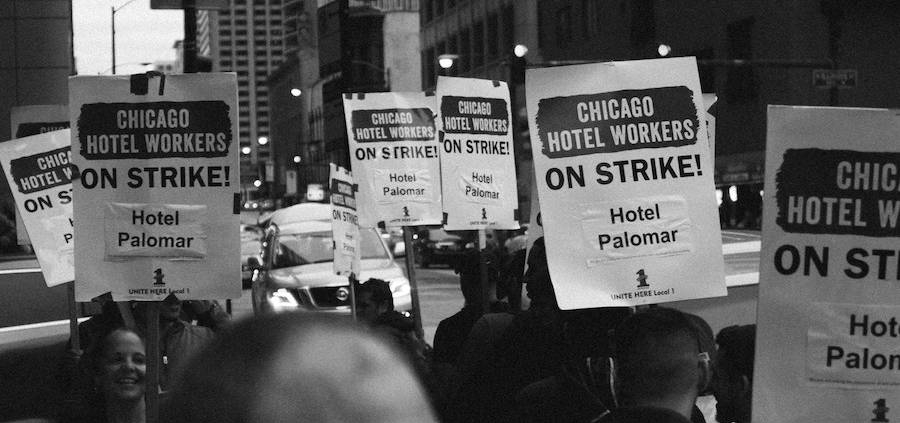Love and Labor by Fran Salone-Pelletier
A version of this article originally appeared in the Brunswick Beacon—Ed.
Today is Labor Day. It’s the signal for many of us to sigh a fond farewell to summer. It is also a recognition that life’s challenges both command and demand labor. Hopefully, it is replete with love, underscored with constancy, and punctuated with diligence. I’m sure most of us would prefer to celebrate it with parades and barbecues, days at the beach, or family picnics. To recall its history is to be reminded that pain preceded the luxury of a day free from labor.
Our history seems to be wrapped and unwrapped in enslavement of all sorts. We fall into conflict, apparently unceasingly, and never quite finish the labor of communication nor of co-operation. The holiday is yet to be celebrated universally. There are yet those who work on that day so that we might play. Our connectedness is not totally free of challenges.
To read the history of this holiday is to recognize its origin was assuredly not a holy time. Nor was it free from pain, sorrow, and death. A Google search revealed an article written by Sarah Pruitt. In it, she writes: “But the history behind the Labor Day holiday is far more complex and dramatic than most might realize, starting with a heated campaign by workers in the late 19th century to win support and recognition for their contributions. In July 1894, President Grover Cleveland finally signed into law legislation creating a national Labor Day holiday in early September—even as federal troops in Chicago brutally crushed a strike by railroad and Pullman sleeping car company workers, leaving some 30 people dead.”
Quite obviously, this was neither a friendly gathering of picnickers nor a parade of fun-loving folks waving flags and marching proudly to the applause of onlookers. This was a labor of love that demanded equity for all. It was a “striking out for compassion in the marketplace”—hopefully to evoke a universal celebration of justice and mercy.
One might ask if it has been successful. The answer is shaky. The response is critical. Questions readily arise. What can be done? Aren’t we all flawed human beings? Are any of us really willing to labor for life with love? What can we actually do to empower this kind of charity, this brand of compassion, this way of living well with each other? Are we willing, each of us, to forego personal pleasure in favor of empowering love’s labor everywhere with everyone all the time? Is it even possible to think about the venture? Or is this a musing relegated to life in fantasyland? How do we go about the work of living well together?
The questions beg consideration, even if there seems to be no plan of remedial action we can take as a common goal.
For me, every day is replete with opportunities for love’s labors not to be lost. When I can “find” them in the ordinariness of daily chores done without inner grumbling, I am on the way to understanding what it means to conjoin love and labor. When work is harshly tedious, I can find ways to soften it. Of course, that might well include swallowing hard when the labor is not accomplished to my personal satisfaction! Then the crucial question rises: Is this a labor of love or is it an item for a checklist? Am I really seeking to put my finger in the pie of life, then pull it out, and declare my goodness? If so . . . it’s back to square one!
I’ll need to strike out on a different path—the way of companionship where working together is key. For me, this comprises the trail and trial of love’s labor. I can’t simply set apart one day a year to celebrate what is not happening every day of the year . . . unless history teaches me a lesson.
While standing firmly on the ground of equity, of liberty and justice for all, strikes also evoked deadly action. Strikers and employers, workers and law enforcers alike were killed. Freedom came at an incredible price. Is this what we want to celebrate on Labor Day? Is this kind of action and reaction the required cost of living?
Perhaps we need to rethink the ways in which we remember past experiences. Perhaps we might work together to discover or rediscover the largesse of freedom for all. Perhaps we could celebrate the merits of labor by honoring those whose labor is too frequently ignored or misunderstood, or denied its value for all of us.
Perhaps the Labor Day parades could be comprised of those who labor long and hard to see that we are kept in good health and remain so. We might include grocers and bakers and farmers, daycare workers and those who clean the floors and windows and doors of all the buildings we enter. It might be a considered parade of the “least of these”—the ones noted in Scripture as uniquely beloved by God.
However it is attempted, however it is conceived or perceived, this might indeed be the first step toward honoring the labor of those whose rank and file is too frequently ignored in favor of the ones we honor as important. The labor of their love, unrecognized and even demeaned, is the unseen, unspoken work of holiness.
Labor Day can become a beacon of love’s light gleaming in the darkness of unrequited labor. It can be a holy day of entry into the power of life’s challenges seen newly as a labor of love. ♦





Leave a Reply
Want to join the discussion?Feel free to contribute!